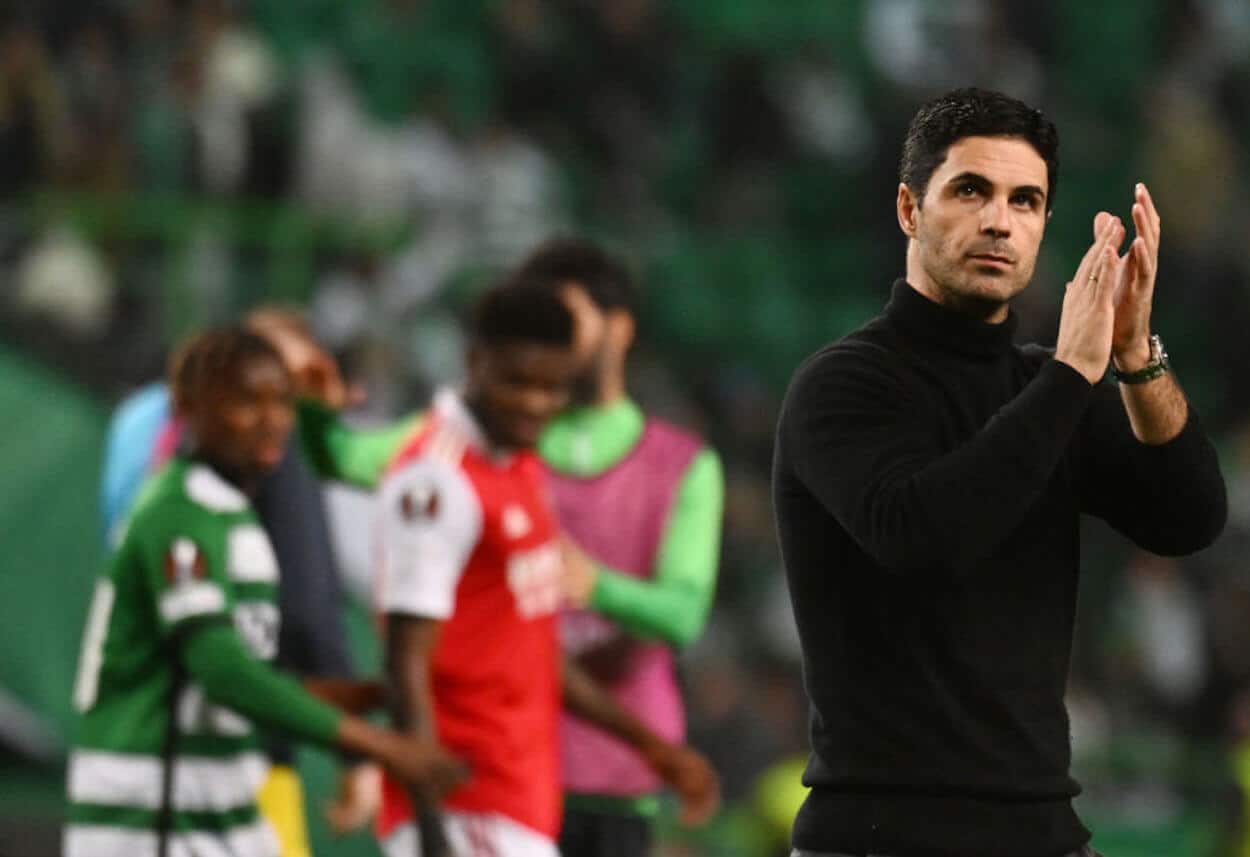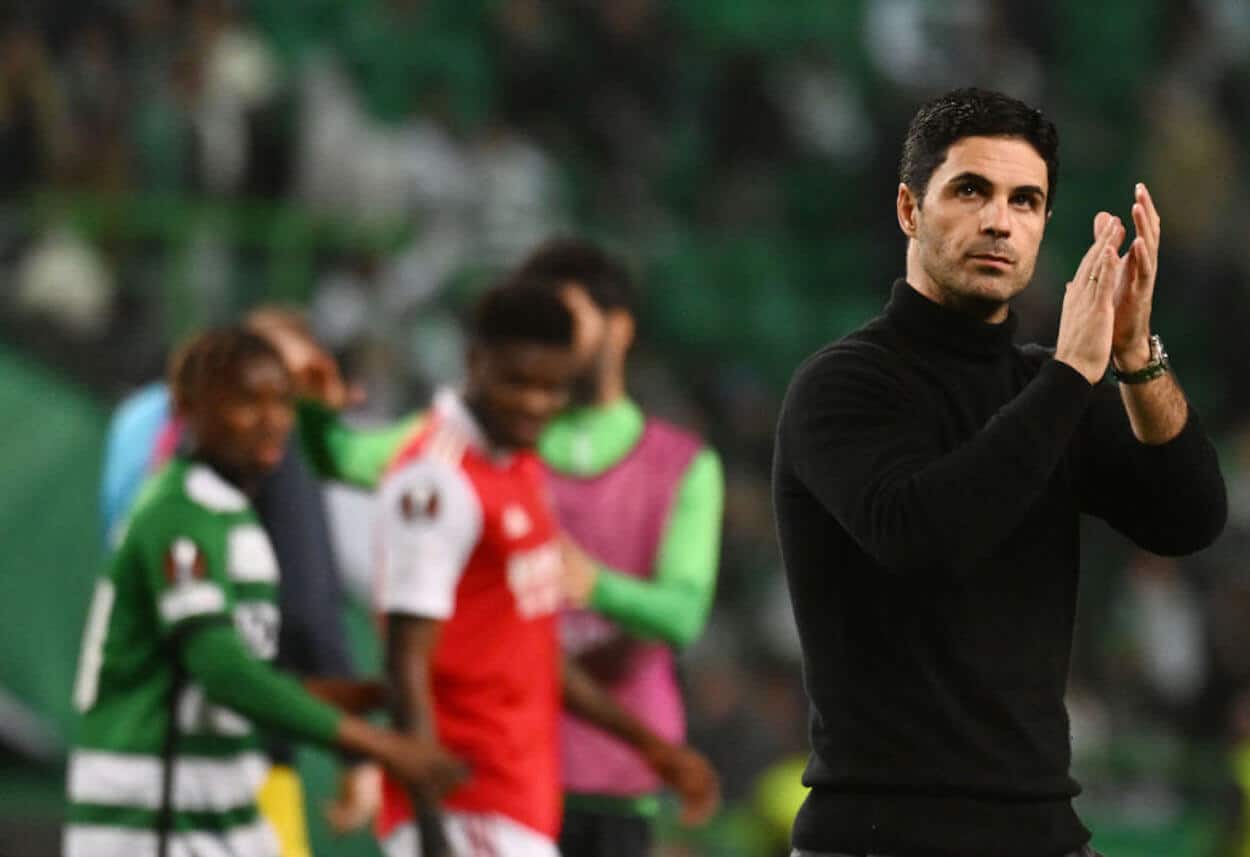Soccer
Mikel Arteta Heart Surgery: A Life-Changing Procedure Now Seems Like a Moment of Destiny for Arsenal

When you picture a professional athlete, you probably imagine someone at the peak of their physical prowess. That’s certainly true in soccer, where both sprinting and distance running are key parts of the game. And if you consider Arsenal manager Mikel Arteta, it seems like he’s still in playing shape; if nothing else, he’s more than capable of bouncing around his technical area and (metaphorically) kicking every ball.
But did you know that things could have been much different if not for a life-changing moment in the early 1980s?
Yes, long before he made his name as a professional athlete, Mikel Arteta needed to have heart surgery. Not only did that set him on the path to success, but, in hindsight, it looks like a moment of destiny for Arsenal Football Club.
Mikel Arteta heart surgery: What we know about the Spaniard’s medical past
While it may seem like an eternity ago, Arsenal started the 2021-22 Premier League season in dire straights. The club had lost the opening three matches of the campaign without scoring a single goal, and ahead of a date with Norwich, something had to give. It was at that moment that Mikel Arteta laid his cards on the table.
“In many industries, they have high-performance teams,” the manager told his team ahead of the game, as seen in Amazon’s All or Nothing. “And the high-performance teams are called like this because they all have something in common: because they get results. When I was born, I was born with a big heart disease. And for two years, they had to try to save my life until I could have the opportunity to have the first open surgery in Spain. So, a high-performance team is not a football team, a basketball team, for example. It can be an emergency team, is the one that they work, for example, in hospitals. So these teams have to be surrounded by people that they are very special. They [are] willing to work 24/7. They do it only for one reason: because they love what they do. Nothing else. That’s the drive; that’s the purpose.”
From there, Arteta discussed his current emotional state and how he felt that working with the squad had provided him with a sense of purpose. The team talk apparently worked, as Arsenal got off the snide and earned their first win of the campaign that afternoon.
And while it’s impossible to know what other details were cut out of the Amazon series, we do have some additional information. When speaking to the BBC, the Spaniard provided some extra insights into his past.
“I was born with a big heart issue that they could not resolve until I was two years old because I was too little,” Arteta explained. “They had to open my heart and go through it. It was one of the first surgeries that was done in that way in Spain, so we didn’t know how it was going to end up.”
That surgery allowed Arteta to not only play football but to do so at the highest level
Despite that uncertainty, everything worked out well for Arteta.
“Everything developed in a normal way, and I was able to fulfill my dream to be a professional footballer,” he added.
And, at the risk of editorializing a bit, he did more than fulfill the dream. The Spaniard put together an impressive career, coming through Barcelona’s academy and playing for PSG, Rangers, Real Sociedad, Everton, and Arsenal. On the silverware did the double in Scotland, winning both the Scottish Premier League and the Scottish League Cup in 2003, and lifted two FA Cups with Arsenal.
Beyond his domestic football, Arteta also appeared for the Spanish national team up to the Under-21 level. While he never earned a cap for the senior squad — not only was Spain’s midfield stacked with world-class talent at the time, but Arteta suffered an unlucky ACL injury in 2009, which probably cost him an opportunity to represent his nation — he did win a U-16 European title and captain the U-21 team.
In hindsight, his surgery helped in another regard. Not only did it allow Arteta to physically take the pitch, but it also taught him a lesson about potential.
“When I was younger, I was told you cannot do that, you cannot expose yourself so much, we cannot take you to the limit of your heart capacity. I was always pushing myself to the limit,” he told the BBC. “The support from my parents was great, and then they had the courage to look for the best possible specialist — and those specialists always had the courage to push those barriers a little bit further because they could see how important it was for me.”
In hindsight, that surgery looks like a sliding doors moment for Arsenal

When you comb through the world of sports, there are plenty of sliding doors moments: situations where, if one thing had gone slightly differently, the entire timeline would follow another path. At the risk of seeming to devalue a life-changing surgery — that’s obviously more important than anything that happens to a football club — the medical procedure certainly changed Arsenal’s path.
Had Arteta been unable to play professional soccer, he wouldn’t have come to North London during the summer of 2011. While he initially looked like something of a panic buy, the midfielder helped stabilize the Gunners during what proved to be the beginning of a tumultuous period. He also helped the club win two trophies, which felt like monuments moments after a lengthy drought.
And if Arteta hadn’t played in North London, he probably wouldn’t have been on the club’s managerial radar. It’s also unlikely that he’d have the same clout to command the locker room or have earned the same faith from the Kroenke family without his existing resume.
Without knowing what the future holds, it seems like Arteta has more than repaid that faith. Even if Arsenal don’t win the 2022-23 Premier League title, the club is virtually assured of a place back in the Champions League. Beyond that, the atmosphere around the Emirates has been night and day from the end of Arsene Wenger’s time in charge. The fan base is excited, the team seems hungry, and, perhaps most importantly, everyone seems to be pulling in the same direction.
And to think, everything could have been different if not for a bold, life-changing surgery.











